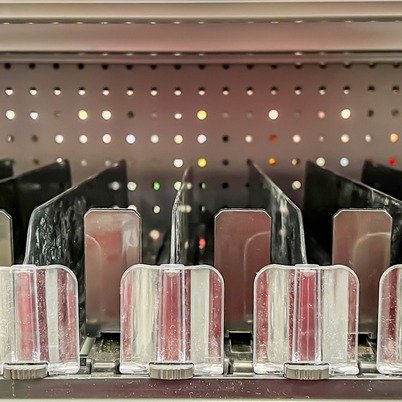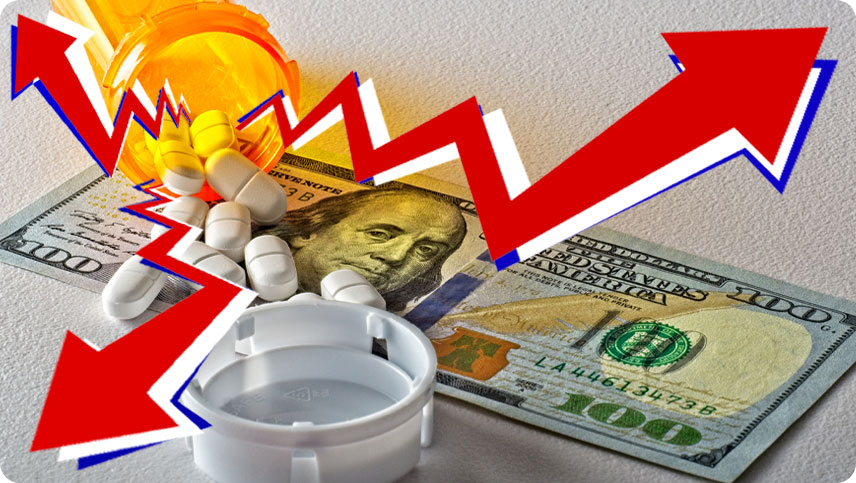
Low-dose naltrexone is an opiate antagonist that is taken orally to block opioid docking sites (receptors) in cells. The drug is approved by the FDA for the treatment of addictions to opioids and alcohol. Low-dose Naltrexone has also been used off-label as a treatment for various types of cancers, HIV/AIDS, Parkinson’s disease, Alzheimer’s disease, amyotrophic lateral sclerosis (ALS), emphysema, as well as multiple sclerosis (MS) and other autoimmune diseases.
Key Takeaways
Those who have liver or kidney problems should avoid taking low-dose naltrexone.
Avoid taking any opioid-based medications or herbal supplements that may have opioid-like compounds as part of their intended uses.
Avoid any alcohol consumption as this could increase your chances of the primary and common side effects like dizziness, anxiety, and nausea.
What to Avoid When Taking Low-dose Naltrexone
Here is what to avoid when taking naltrexone:
1. Avoid Any Opioid-Based Medications
Common types of opioid-based medications are oxycodone (OxyContin), hydrocodone (Vicodin), morphine, and methadone. These are most commonly prescribed for anyone who is feeling pain or having issues with pain. Opioid peptides and their receptors are potential candidates for the development of novel antidepressant treatment. If this is something that you’re currently experimenting with, it’s recommended to avoid the use of any Naltrexone.
Here is a longer list of medications and drugs to avoid taking alongside Naltrexone:
Alfentanil
Alphaprodine
Anileridine
Benzhydrocodone
Buprenorphine
Butorphanol
Codeine
Diacetylmorphine
Difenoxin
Dihydrocodeine
Diphenoxylate
Ethylmorphine
Fentanyl
Hydrocodone
Hydromorphone
Ketobemidone
Levorphanol
Meperidine
Methadone
Morphine
Morphine Sulfate Liposome
Nalbuphine
Nicomorphine
Opium
Opium Alkaloids
Oxycodone
Oxymorphone
Papaveretum
Paregoric
Piritramide
Propoxyphene
Remifentanil
Sufentanil
Tapentadol
Tilidine
Tramadol
2. Alcohol Use
As with most medications, avoiding alcohol consumption can prevent some of the side effects from being more prominent. Some of those common side effects are:
Abdominal or stomach cramping or pain (mild or moderate)
Anxiety, nervousness, restlessness or trouble sleeping
Headache
Joint or muscle pain
Nausea or vomiting
Unusual tiredness
The use of alcohol could increase dizziness, headache, and anxiety or nervousness as those are natural side effects of any alcohol consumption. In combination, could cause increasing severity of these issues.
3. Herbal Supplements
While not tested in a controlled environment, it’s suggested to avoid taking any type of herbal supplements that might be used for anti-depression. That list would include:
Perforate St John's-wort
Lavender
Ginkgo
Saffron
Chamomile
Same
Valerian
Omega 3
Ashwagandha
Ginseng
Lemon balm
Piper methysticum
Rhodiola rosea
Herbal supplements like these may actually contain opioid-like compounds. And the reaction that they could have along with the Naltrexone is unknown.
4. Avoiding Abrupt Discontinuation
Due to the effect that Naltrexone may have on the body, it’s advisable to start to wean your use of the drug off over time. Reducing your dosage size. On average, adults take roughly 50mg per day. You may want to start to slow your milligram percentage over time. This will help with any side effects that could happen from the immediate discontinuation of use.
5. Special Prescription Drugs
It’s important to consider speaking with a physician or primary care doctor about what drugs you are currently taking and the desire to start taking low-dose Naltrexone. Your physician may advise to either adjust your prescriptions or suggest a specific milligram dosage for you to begin your treatment.
6. Avoid Taking With Kidney Problems
The liver metabolizes Naltrexone while the kidney handles its elimination from the body. Meaning that patients who have liver problems should avoid taking low-dose Naltrexone. In addition, patients who do not suffer from these conditions but develop yellow discoloration of their eyes may want to visit a physician about the usage and see if you’re experiencing any liver or kidney problems as part of your treatment plan.
Take Control of Rising Prescription Drug Costs With Drugmart.com
Drugmart.com is the Canadian online prescription referral service that you can trust to help you tackle the high price of prescription drugs. We bring you savings right to your door. Shop now for prescription medication to begin saving on rising drug prices.
Sources
Patient Counseling Tool - Vivitrol (naltrexone for extended-release injectable suspension). FDA. Accessed April 21, 2024 at https://www.accessdata.fda.gov/drugsatfda_docs/rems/Vivitrol
Naltrexone Monograph. Drugs.com Accessed April 21, 2024 at https://www.drugs.com/monograph/naltrexone.html
Sullivan MA, Bisaga A, Pavlicova M, et al. A Randomized Trial Comparing Extended-Release Injectable Suspension and Oral Naltrexone, Both Combined With Behavioral Therapy, for the Treatment of Opioid Use Disorder. Am J Psychiatry. 2019;176(2):129-137. doi:10.1176/appi.ajp.2018.17070732
Vivitrol (naltrexone for extended-release injectable suspension) intramuscular. Accessed April 21, 2024 at https://www.accessdata.fda.gov/drugsatfda_docs/label/2020/021897s049lbl.pdf





